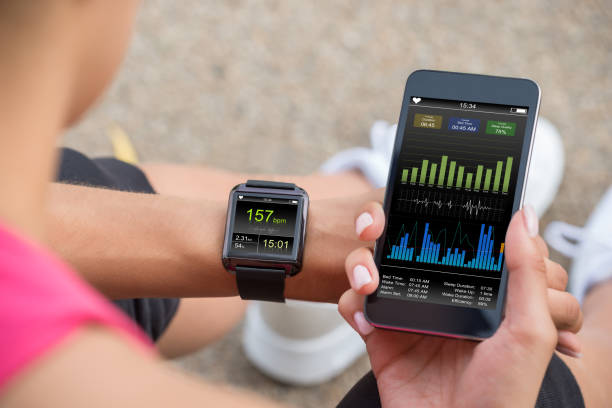The Rise of Fitness Apps: Revolutionizing Personal Wellness
In today's fast-paced world, maintaining a healthy lifestyle can be challenging. However, the advent of fitness apps has transformed the way people approach their personal wellness journeys. These smartphone applications have become powerful tools, enabling users to track their physical activity, monitor their diet, and access professional workout guidance from the palm of their hand.

What types of workouts can you find in fitness apps?
The diversity of workouts available in fitness apps is one of their most appealing features. From high-intensity interval training (HIIT) to yoga and pilates, these apps cater to a wide range of fitness preferences and goals. Many apps offer pre-designed workout plans tailored to specific objectives, such as weight loss, muscle gain, or overall fitness improvement. Users can often choose from various difficulty levels and workout durations, making it easy to find exercises that suit their current fitness level and available time.
Can fitness apps replace traditional gym memberships?
While fitness apps offer tremendous convenience and flexibility, the question of whether they can fully replace traditional gym memberships depends on individual preferences and fitness goals. For many users, fitness apps provide a cost-effective alternative to expensive gym memberships, offering guided workouts that can be done at home or outdoors with minimal equipment. However, some people may still prefer the social aspect and specialized equipment available in physical gyms. Ultimately, fitness apps can complement or, in some cases, replace traditional gym memberships, depending on the user’s needs and circumstances.
How do fitness apps help with exercise motivation and consistency?
One of the key advantages of fitness apps is their ability to boost motivation and encourage consistent exercise habits. Many apps incorporate gamification elements, such as achievement badges, progress tracking, and community challenges, to keep users engaged and motivated. Push notifications and reminders can prompt users to stay active, while progress visualizations and goal-setting features provide a sense of accomplishment. Some apps also offer social features, allowing users to connect with friends, share achievements, and participate in friendly competitions, further enhancing motivation and accountability.
What are some popular fitness apps and their features?
| App Name | Key Features | Cost Estimation |
|---|---|---|
| MyFitnessPal | Calorie tracking, food database, exercise logging | Free with premium option ($19.99/month) |
| Strava | GPS tracking for running and cycling, social features | Free with premium option ($7.99/month) |
| Nike Training Club | Wide variety of workouts, personalized plans | Free |
| Fitbody | Customized workout plans, meal planning | $11.99/month |
| Peloton | Live and on-demand classes, equipment integration | $12.99/month (app only) |
Prices, rates, or cost estimates mentioned in this article are based on the latest available information but may change over time. Independent research is advised before making financial decisions.
How can you choose the right fitness app for your needs?
Selecting the most suitable fitness app depends on various factors, including your fitness goals, preferred exercise types, and desired features. Consider apps that align with your specific objectives, whether it’s weight loss, muscle building, or improving overall health. Look for user-friendly interfaces and features that resonate with your workout style. Many apps offer free trials or basic versions, allowing you to test their functionality before committing to a subscription. Reading user reviews and comparing different apps can also help you make an informed decision. Remember that the best fitness app is one that you’ll use consistently and that fits seamlessly into your lifestyle.
In conclusion, fitness apps have revolutionized the way people approach personal wellness, offering convenient, customizable, and engaging solutions for maintaining an active lifestyle. By leveraging smartphone technology, these apps provide users with powerful tools to track their progress, stay motivated, and achieve their fitness goals. As the technology continues to evolve, fitness apps are likely to play an increasingly important role in promoting health and well-being in our digital age.




